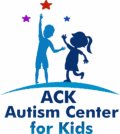signs of autism in baby: What Every Parent Should Know Before Diagnosis-If you’re a parent wondering about the early signs of autism, you’re not alone. Many families begin their journey into understanding autism with questions like “is autism a disability?”, “what is level 1 autism?”, “how many levels of autism are there?”, or “what are the signs of autism in a baby?”. This article is your complete guide to recognizing early signs, navigating the diagnosis process, and understanding what lies ahead.

What Are the Early Signs of Autism?
Autism Spectrum Disorder (ASD) affects how children communicate, behave, and interact with others. Most signs begin to show before the age of 3, sometimes as early as 6 months. Recognizing these early signs of autism can help parents seek intervention during the most critical stages of development.
Social Interaction Challenges
- Avoids eye contact
- Doesn’t respond to name
- Limited facial expressions
- Doesn’t engage in back-and-forth play
Communication Delays
- Delayed speech or language skills
- Unusual tone of voice (flat, singsong, or robotic)
- Limited use of gestures like pointing or waving
Repetitive Behaviors and Routines
- Hand flapping, rocking, or spinning
- Lines up toys or objects
- Gets upset by changes in routine
Sensory Sensitivities
- Overreacts to textures, lights, or sounds
- Unusual interest in sensory aspects (spinning wheels, lights, etc.)
Signs of Autism in a Baby
Babies may show signs as early as 6 to 12 months. Key indicators include:
- Lack of eye contact or smiling
- Not babbling or using gestures
- Not turning head toward sounds
- Doesn’t imitate facial expressions
If you notice these signs, consult a pediatrician or child psychologist. Early detection is key.
Is Autism a Disability?
Yes, autism is considered a developmental disability. However, the degree of disability varies widely. Autism exists on a spectrum, meaning it presents differently in every individual. Some children may have mild symptoms and lead highly independent lives (often considered level 1 autism), while others may need substantial support.
Under Canadian law, autism qualifies for accommodations and funding through various provincial programs like the Ontario Autism Program (OAP).
Understanding the Levels of Autism
The DSM-5 (Diagnostic and Statistical Manual of Mental Disorders) outlines three levels of autism based on support needs:
Level 1 Autism: Requiring Support
- Mild symptoms
- Difficulty with social interactions
- May require help in organizing tasks
Level 2 Autism: Requiring Substantial Support
- More noticeable communication and social challenges
- Repetitive behaviors are more obvious
- Needs structured support
Level 3 Autism: Requiring Very Substantial Support
- Severe communication and social difficulties
- Limited or no verbal communication
- Rigid behaviors and routines
Each level is not a measure of intelligence but of functional support needed.
What To Do If You Suspect Autism
Step 1: Observe Consistently
Write down unusual behaviors or missed milestones. Use videos if possible.
Step 2: Talk to Your Pediatrician
Bring your observations and ask for a developmental screening.
Step 3: Request a Formal Assessment
In Ontario, parents can seek referrals to child psychologists or developmental pediatricians. You can also reach out to an autism center like Tikvah Family Services in Oakville.
Early Intervention: Why It Matters
Early intervention can significantly improve a child’s communication, social, and learning skills. Approaches like play therapy, speech therapy, and occupational therapy can be customized for your child.
Common Therapies for Young Children with Autism:
- Speech-Language Therapy
- Occupational Therapy
- Play Therapy or DIR/Floortime
- Parent Training and Support Groups
Real-Life Story: “I Knew Something Was Off”
“My daughter didn’t respond to her name by 12 months. Everyone said she was just shy. But my gut told me something more was going on. We got her assessed at 18 months, and today—thanks to early therapy—she’s starting to talk and connect. Don’t wait. Follow your instincts.” – Parent from Vaughan
FAQs About Early Signs of Autism
Q: Can a child show signs and not have autism?
Yes. Some children may show a few signs but may not meet the criteria for autism.
Q: Is autism more common in boys or girls?
Boys are about 4 times more likely to be diagnosed, though girls may go undiagnosed longer.
Q: How early can autism be diagnosed?
Diagnosis can be made as early as 18 months, but many children are diagnosed closer to age 3.
Q: Can autism be cured?
There’s no cure, but therapies can significantly improve function and quality of life.
Final Thoughts: Early Action Empowers Parents
Recognizing the early signs of autism, understanding the levels of autism, and knowing when and how to act can make all the difference. Whether you’re wondering if autism is a disability or trying to decode level 1 autism symptoms, the best course of action is early observation and support.
Don’t wait. Talk to your pediatrician, reach out to local resources, and trust your instincts.
Need Support in Vaughan or Oakville? Contact Tikvah Family Services to speak to a child therapist or book an autism screening.
Internal Links: Tikvah Family Services
External Links: Ontario Autism Program
Discover more from Autism Services and therapy for Kids by counseling
Subscribe to get the latest posts sent to your email.

You must be logged in to post a comment.